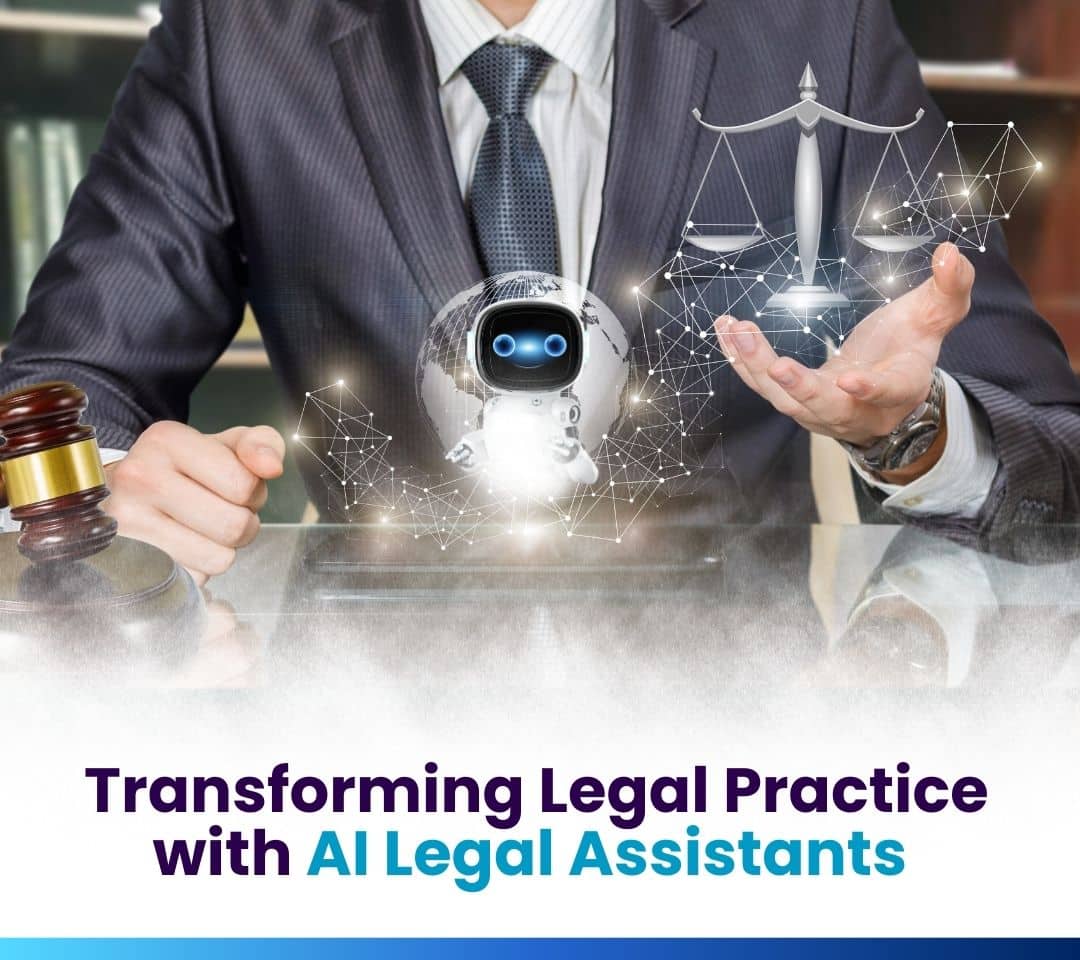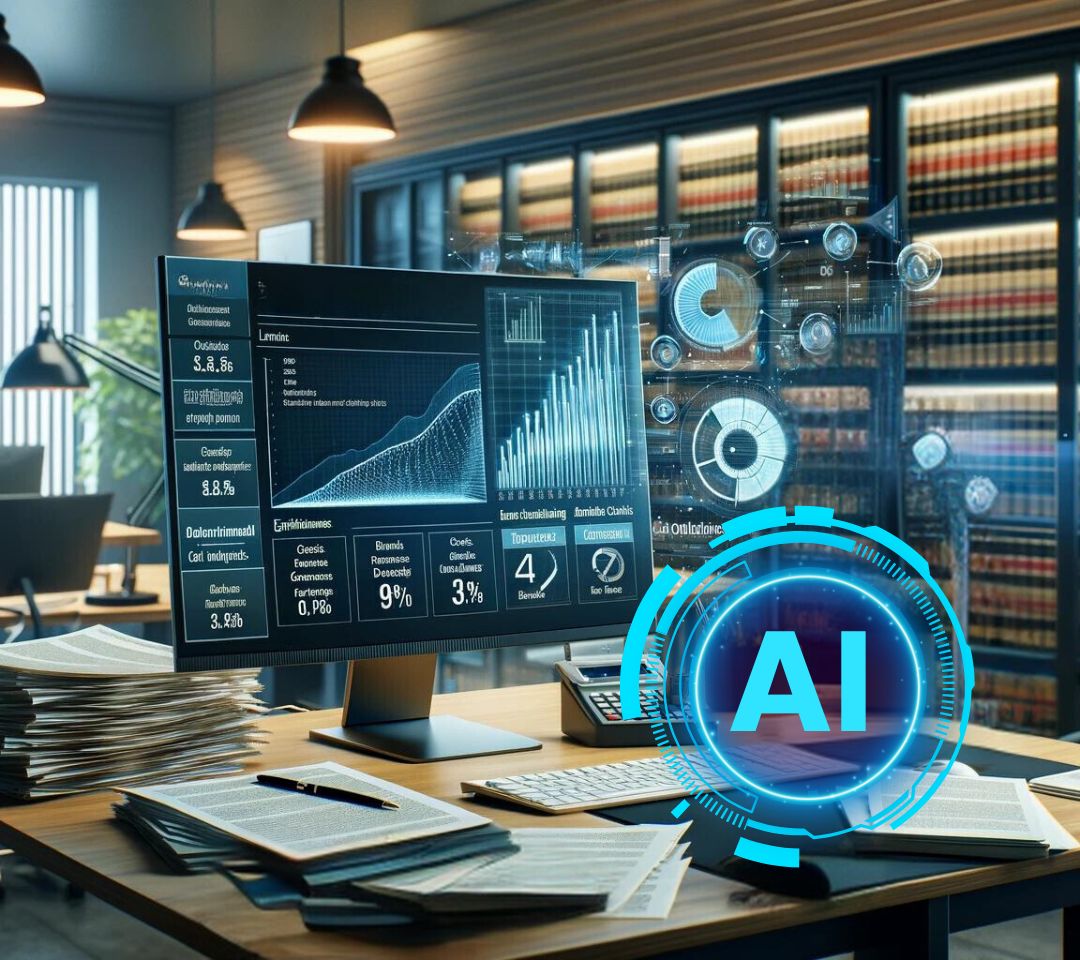AI Legal Assistant
Artificial intelligence (AI) has increasingly become a cornerstone of modern legal practice. Technologies such as machine learning, natural language processing, and predictive analytics are commonly used to streamline operations, from document analysis to complex legal research. These tools increase efficiency and enhance the accuracy of routine tasks, allowing lawyers to focus on more strategic aspects of their cases.
Role of AI Legal Assistants in Document Review and Research
AI legal assistants are revolutionizing how tasks such as document review and legal research are conducted within law firms. These systems can rapidly analyze vast amounts of data, precisely identifying relevant case precedents, legal statutes, and critical documents.
Additionally, AI enhances due diligence processes by extracting and organizing key information from a range of legal documents, significantly reducing the time lawyers spend on these activities.

Comparison With Traditional Methods
Compared to traditional methods, AI legal assistants offer a significant efficiency boost. Where manual document review is labor-intensive and prone to human error, AI systems provide quick, consistent, and accurate analysis.
For legal research, traditional approaches often involve lengthy searches through legal databases and books, while AI tools can quickly sift through millions of documents to find necessary information, thereby streamlining workflows and minimizing the scope for oversight.
This not only speeds up the legal process but also reduces the overall costs associated with lengthy legal procedures.
Technology Behind AI Legal Assistants
Machine Learning and Natural Language Processing
Machine learning (ML) and natural language processing (NLP) are foundational technologies that power AI legal assistants. ML algorithms learn from large datasets of legal documents to improve their predictions and decisions over time, adapting to new information as cases evolve.
NLP enables these systems to understand and interpret human language, allowing them to process legal documents, extract relevant details, and even generate legal writing. This combination not only enhances task precision but also tailors AI outputs to the nuanced needs of legal contexts.
Specific AI Systems Popular in Legal Practices
Among the AI systems making significant impacts in legal practices are Ross Intelligence and Kira Systems.
Ross Intelligence leverages AI to assist with legal research, providing answers to complex legal questions by browsing through vast bodies of law quickly and efficiently.
Kira Systems, on the other hand, specializes in contract analysis and due diligence. It uses machine learning to identify, analyze, and extract information from contracts and other documents.
Both systems exemplify how AI can augment the capabilities of legal professionals, reducing time and costs while improving service delivery.
AI in Litigation Support
Use of AI for evidence gathering and analysis
In legal cases, the gathering and analysis of evidence are being transformed by AI technologies. AI can analyze large amounts of data and identify relevant information much faster than humans by using advanced algorithms. This capability speeds up the litigation process and enhances the accuracy of the evidence being presented.
AI’s role in predicting litigation outcomes
AI’s predictive capabilities are becoming increasingly valuable in litigation support. By analyzing historical data and previous case outcomes, AI systems can forecast the potential results of current cases, guiding lawyers in their strategy planning. This predictive insight allows legal professionals to manage client expectations better and prepare more effectively for various procedural outcomes.
Cost-Effectiveness of AI Legal Assistants
Economic impact on law firms and legal departments
Adopting AI legal assistants significantly affects the economic landscape of law firms and legal departments. These tools can lead to significant cost savings by automating tasks like document review and case prediction, which reduces the hours billed by human employees. Additionally, AI increases efficiency and allows firms to handle more cases without additional staff.

Comparing costs between AI assistants and human paralegals
When comparing the costs of AI assistants to human paralegals, AI often emerges as a more cost-effective option over the long term. While the initial investment in AI technology can be high, the operational costs are generally lower than the salaries, benefits, and other employment costs associated with human paralegals. Moreover, AI can work around the clock without the need for breaks or overtime pay, providing non-stop productivity that enhances the financial metrics of legal practices.
Integration Challenges
Technical challenges in integrating AI with existing legal systems
Integrating AI into established legal systems presents significant technical challenges. These systems often rely on legacy technologies that are not designed to interface seamlessly with AI-driven tools. Compatibility issues can hinder the effective deployment of AI functionalities, necessitating extensive customization or complete system overhauls. Additionally, ensuring data integrity and security during integration is a complex task that requires robust solutions.
Overcoming resistance to technological change in law firms
Resistance to technological change within law firms can be a formidable barrier to the integration of AI. This resistance often stems from a combination of skepticism about AI capabilities and concerns about job displacement among staff. To address these challenges, law firms need to engage in comprehensive change management strategies, which include training programs to educate staff about the benefits of AI and how it can augment, rather than replace, their roles. Building a culture that embraces innovation is crucial for successfully adopting AI in legal practices.
Intellectual Property Management with AI
AI applications in managing IP portfolios
AI is revolutionizing the management of intellectual property (IP) portfolios by enabling more strategic and informed decision-making processes. Advanced AI systems can analyze large volumes of data from patents, trademarks, and copyrights to provide insights into market trends and potential infringement issues. This empowers IP managers to proactively adjust their strategies, ensuring that their portfolios are secure and strategically positioned for commercial advantage.
Automation of routine IP tasks like patent analysis
AI significantly enhances the efficiency of routine IP tasks such as patent analysis. By automating the extraction and comparison of technical information from large sets of patent documents, AI tools reduce the time and effort required by human analysts. This not only speeds up the review process but also improves accuracy by minimizing human error. The automation of these tasks allows IP professionals to focus on more complex and strategic aspects of patent management, enhancing overall productivity and effectiveness in the IP sector.
Client Interactions and AI
How AI Is Reshaping Client-Lawyer Interactions
AI technologies are significantly altering the dynamics between clients and lawyers.
AI-driven platforms enable more immediate and on-demand legal services, allowing clients to receive quick preliminary advice and automated document assistance.
This accessibility can enhance client satisfaction by providing faster responses and more transparent processes.
Additionally, AI can facilitate better communication by analyzing large volumes of communication data to predict client needs and tailor interactions accordingly.
Client Privacy and Data Security Considerations
With the integration of AI into client interactions, privacy and data security concerns become paramount.
Law firms must ensure that AI systems comply with stringent legal standards for data protection, such as GDPR in Europe or HIPAA in the United States, depending on the context.
Safeguarding client information processed by AI involves encrypting data transfers, securely storing data, and implementing robust access controls.
Moreover, clients must be informed about how AI tools use their data, ensuring transparency and maintaining trust in the attorney-client relationship.
Recommendations for Law Firms Considering AI Integration
A strategic approach is essential for law firms contemplating the adoption of AI. It is recommended that firms start with a clear understanding of their specific needs and the AI solutions available to meet those needs. Investing in staff training to ensure smooth integration and ongoing adaptation to AI technologies is crucial.
Additionally, firms should prioritize data security and ethical considerations to maintain client trust and comply with legal standards. By adopting these practices, law firms can harness AI’s benefits to enhance their services and maintain competitiveness in a rapidly evolving legal landscape.
